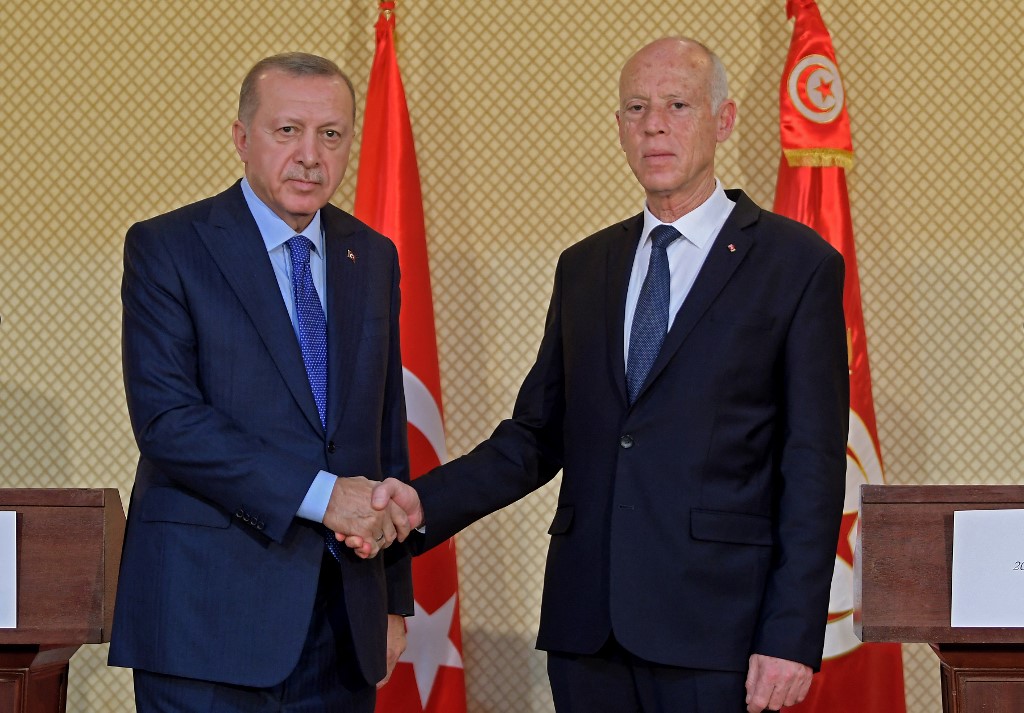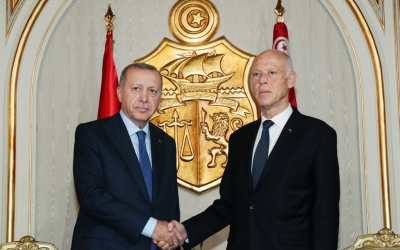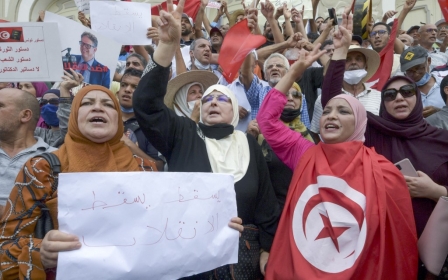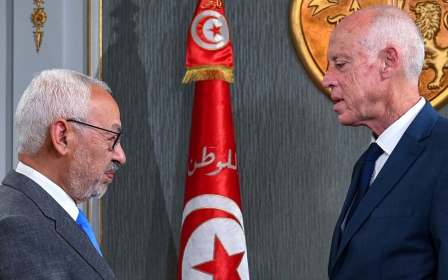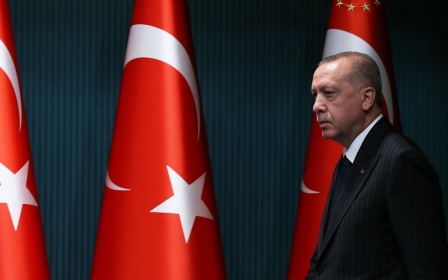Tunisia coup: Why has Turkey taken a muted stance?
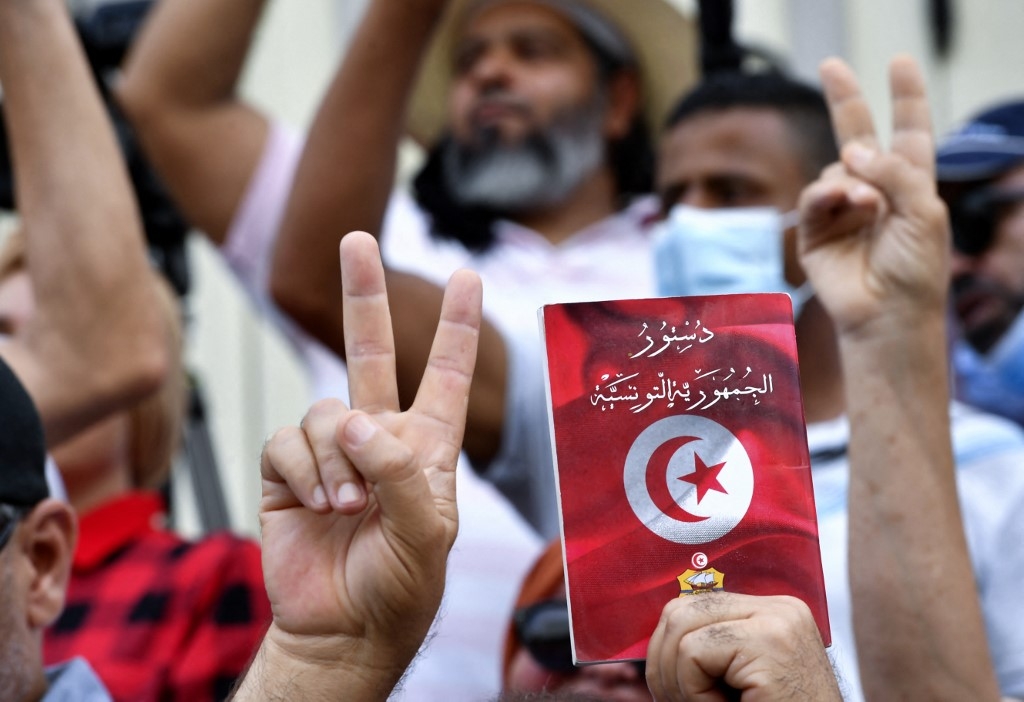
Turkey has adopted toned-down language towards Tunisian President Kais Saied’s recent power grab and avoided calling it a coup, despite knowing that the course of events could endanger its North Africa policies.
Turkey revised its approach to Tunisia after secular parties became more prominent in Tunisian politics after the 2014 elections. This policy adjustment has entailed reaching out to secular parties on one hand, while retaining close ties with the Islamist Ennahda party on the other - an approach in line with Ankara’s efforts to strengthen its ties with Maghreb countries, and one that overlaps with ongoing normalisation efforts between Ankara and Arab capitals.
Turkey's balancing act in Tunisia reflects its interest-driven policy in Europe's southern neighbourhood
Germany and other European states should see this as an opportunity to encourage regional de-escalation and contribute to a constructive regional dialogue.
After Saied sacked the Tunisian government in July, suspended parliament and assumed nearly total power, other political parties accused him of staging a coup, while many Tunisians - exhausted by a deteriorating economic situation that has worsened with the Covid-19 pandemic - took to the streets and celebrated.
Surprisingly, Turkey reacted more cautiously than it had when the 2013 military coup in Egypt ousted President Mohamed Morsi. Initially, representatives of the ruling Justice and Development Party (AKP) heavily criticised Saied’s move, but Turkish President Recep Tayyip Erdogan adopted a softer tone after talking with the Tunisian president, merely urging a return to the activities of parliament. Ankara is clearly aiming to avoid any confrontation that could risk its relations with Tunisia.
New MEE newsletter: Jerusalem Dispatch
Sign up to get the latest insights and analysis on Israel-Palestine, alongside Turkey Unpacked and other MEE newsletters
Intense diplomacy
This is not the first time Turkey has opted for measured rhetoric in its policy towards Tunisia. Ennahda’s rise to power in the 2011 elections motivated the AKP to reshape its Tunisia policy according to its political affinity with the party. This post-Arab-uprising policy aligned with Ankara’s regional strategy, which mostly focused on forming partnerships with Muslim-Brotherhood-aligned political parties.
These years marked a period of intense diplomacy between Turkey and Tunisia, which resulted in the signing of a set of cooperation agreements, including the 2011 Treaty of Friendship and Cooperation and the 2012 establishment of a high-level strategic cooperation council focused on security and defence.
The diplomatic momentum also enhanced economic relations. Turkey and Tunisia had already established a free trade agreement in 2005, but the process of lifting trade barriers on many goods was fully completed in 2014.
Yet, the 2014 elections, both presidential and parliamentary, changed the balance in Tunisian politics in favour of secularist parties and proved that the political landscape is multi-polar, comprising a polyphony of voices. Secular parties enjoy solid popular support, which in turn requires a constant search for political consensus. This necessitated Turkey to develop a wider network of social and political actors, including secular forces, and led to a shift in Turkey’s approach to Tunisia.
Another dynamic that pushed Turkey to reshape its strategy was the increasing criticism from Tunisia about Ankara’s regional policies and their implications for Tunisia. The most serious critique centred on the issue of Tunisian fighters in Syria, Iraq and Libya; in 2015, Tunisia’s foreign minister accused Ankara of facilitating the transit of these fighters, presenting security concerns for Tunisian authorities.
Shifting political landscape
Ennahda is now even more under the spotlight because it stands accused of receiving foreign funding, not preventing political violence and corruption, and having close relations with Turkey beyond official diplomatic channels.
The warm relations of the party’s co-founder, Rached Ghannouchi, with the AKP have stirred a lot of controversy in Tunisia. Ghannouchi faced massive criticism last year after travelling to meet Erdogan without informing the relevant authorities, which was perceived by his opponents in Tunisia as overstepping his prerogatives as parliament speaker.
The changing political landscape has also affected economic relations between Tunisia and Turkey. With a widening trade deficit, the two countries have been negotiating to modify the terms of their free trade agreement. Ankara thus considers its economic relations with Tunisia to be fragile, highlighting the need for a more balanced bilateral policy.
After Tunisia’s secular Nidaa Tounes party won the 2014 elections, Ankara showed its willingness to deepen relations under the new president and government, congratulating Beji Caid Essebsi on his presidential victory. In May 2016, Tunisian Prime Minister Habib Essid visited Turkey.
Diplomatic efforts to forge ties with the new leading political forces intensified, especially in terms of security cooperation. Turkey reformulated its engagement in Tunisia by aiming to boost Turkey’s role in Tunisia’s military modernisation and arms market.
In 2017, the two countries signed a series of agreements that paved the way for the transfer of technology and military cooperation. Last year, Tunisia’s defence ministry signed a contract with Turkish Aerospace Industries for the purchase of medium-altitude long-endurance unmanned aerial vehicles. Tunisia has become Turkey’s largest buyer of armoured vehicles in the Maghreb.
Balancing act
The goal of Turkey’s engagement is to strengthen its geostrategic and geo-economic ties with Maghreb countries. Ankara is thus eager to cooperate with regional countries on economic and security matters, and Turkey’s balancing act in Tunisia reflects its interest-driven policy in Europe’s southern neighbourhood.
But Turkey faces a dilemma in its balancing act. On the one hand, Turkey’s ruling AKP continues to maintain close relations with Ennahda, but on the other, it portrays Turkey as a bipartisan and reliable regional ally that can offer support in strategic areas, such as security. Secular forces in Tunisia perceive Turkey’s support for Ennahda as an interference in the county’s domestic affairs, hindering a substantial shift in Turkey’s regional policy.
Europe should capitalise on this opportunity and encourage Turkey's diplomatic approach
The second limitation is Turkey’s lack of allies. Turkey’s relations with its partners in the West, as well as in the region, have experienced ups and downs in recent years. Turkey has lately begun to deescalate tensions with Egypt, Saudi Arabia and the UAE, while simultaneously aiming to repair deteriorated relations with the West.
Turkey’s readjustments suggests that Ankara is aware of the need for a change in its regional policy. But the effects of this normalisation strategy are limited, and it should be supplemented with a cooperative framework to contribute to regional stability.
For their part, European partners should overcome their reluctance to collaborate with Turkey in the Mediterranean. Europe should capitalise on this opportunity and encourage Turkey’s diplomatic approach. Turkey’s official response in calling for the restoration of democratic legitimacy in Tunisia was in line with the European Union and its member states - a good starting point to find common ground in strengthening stability in the Mediterranean.
With the decreasing interest of the US in the Mediterranean, Europe’s role in the region has become even more important. If the EU aims to influence and reshape regional dynamics in its southern neighbourhood, policymakers should engage more, both politically and economically, to avoid the risks associated with regional polarisation and enmity.
A longer version of this column was first published by the German Institute for International and Security Affairs (SWP).
The views expressed in this article belong to the author and do not necessarily reflect the editorial policy of Middle East Eye.
Middle East Eye delivers independent and unrivalled coverage and analysis of the Middle East, North Africa and beyond. To learn more about republishing this content and the associated fees, please fill out this form. More about MEE can be found here.


